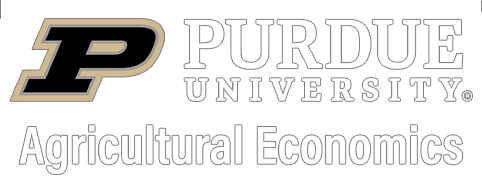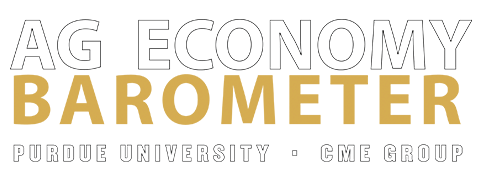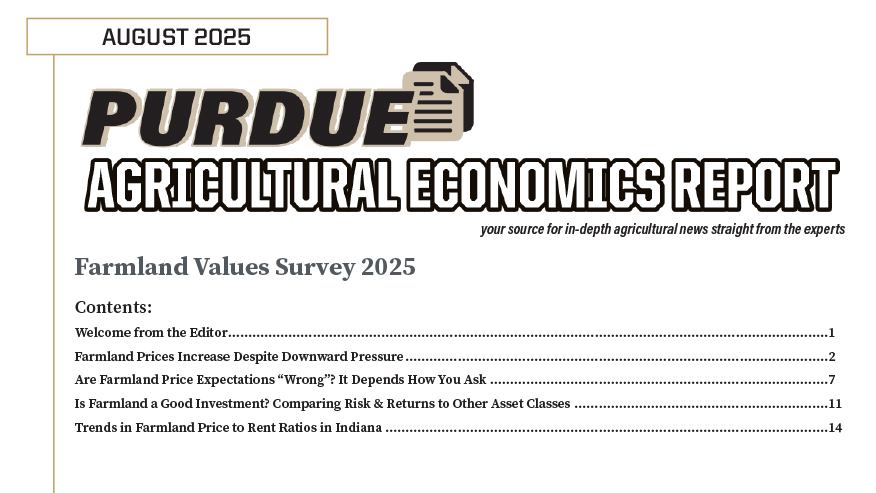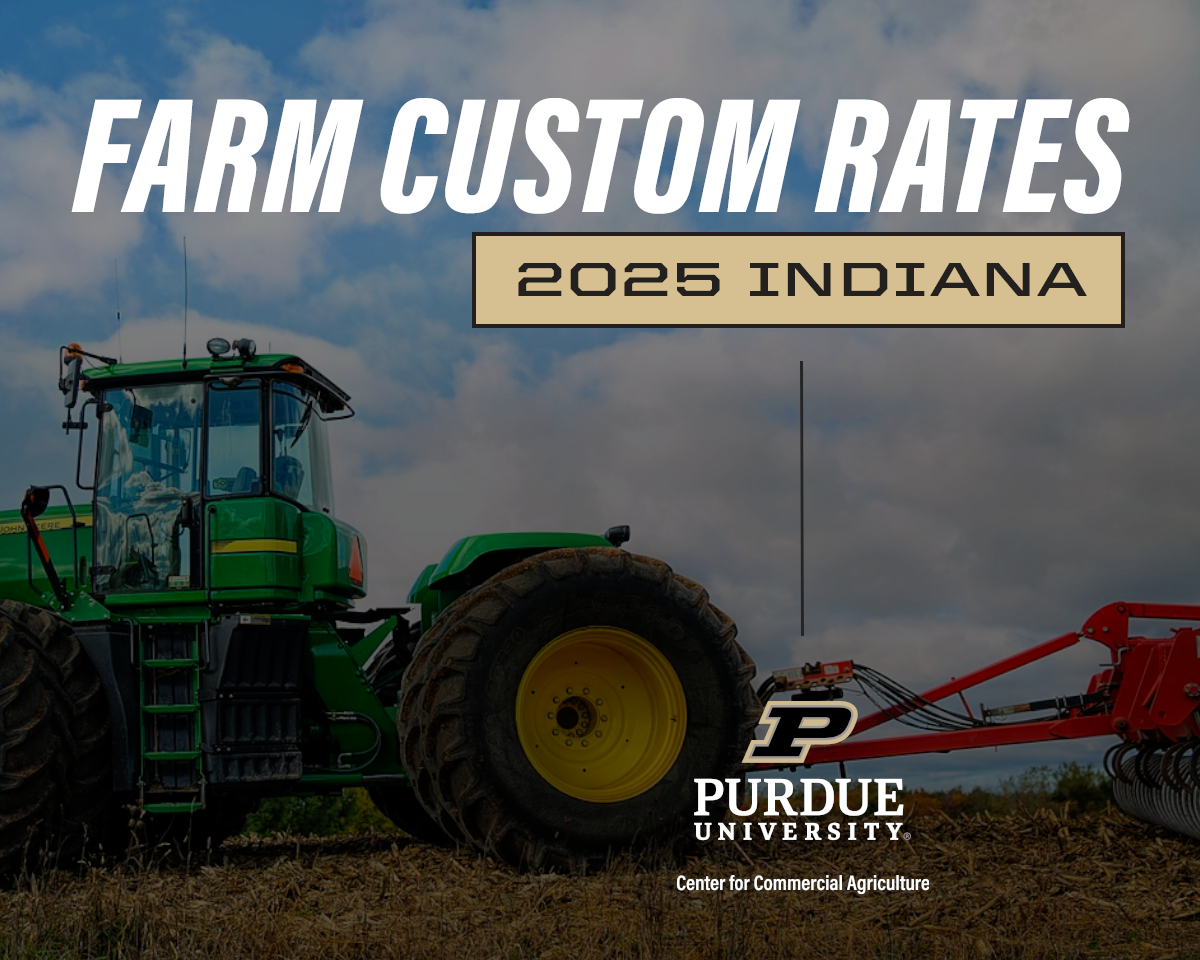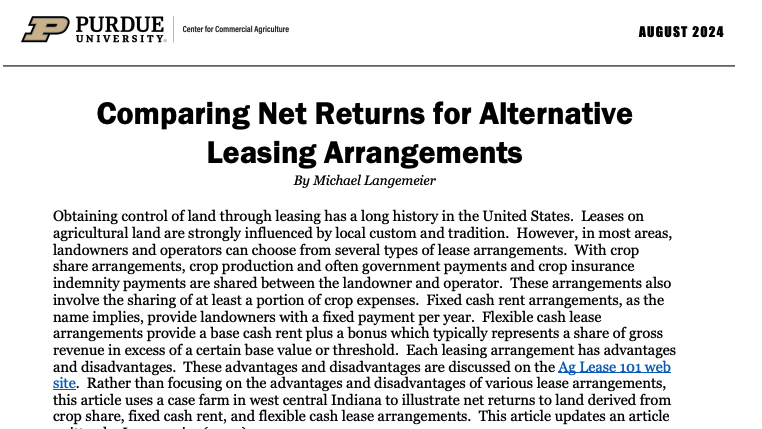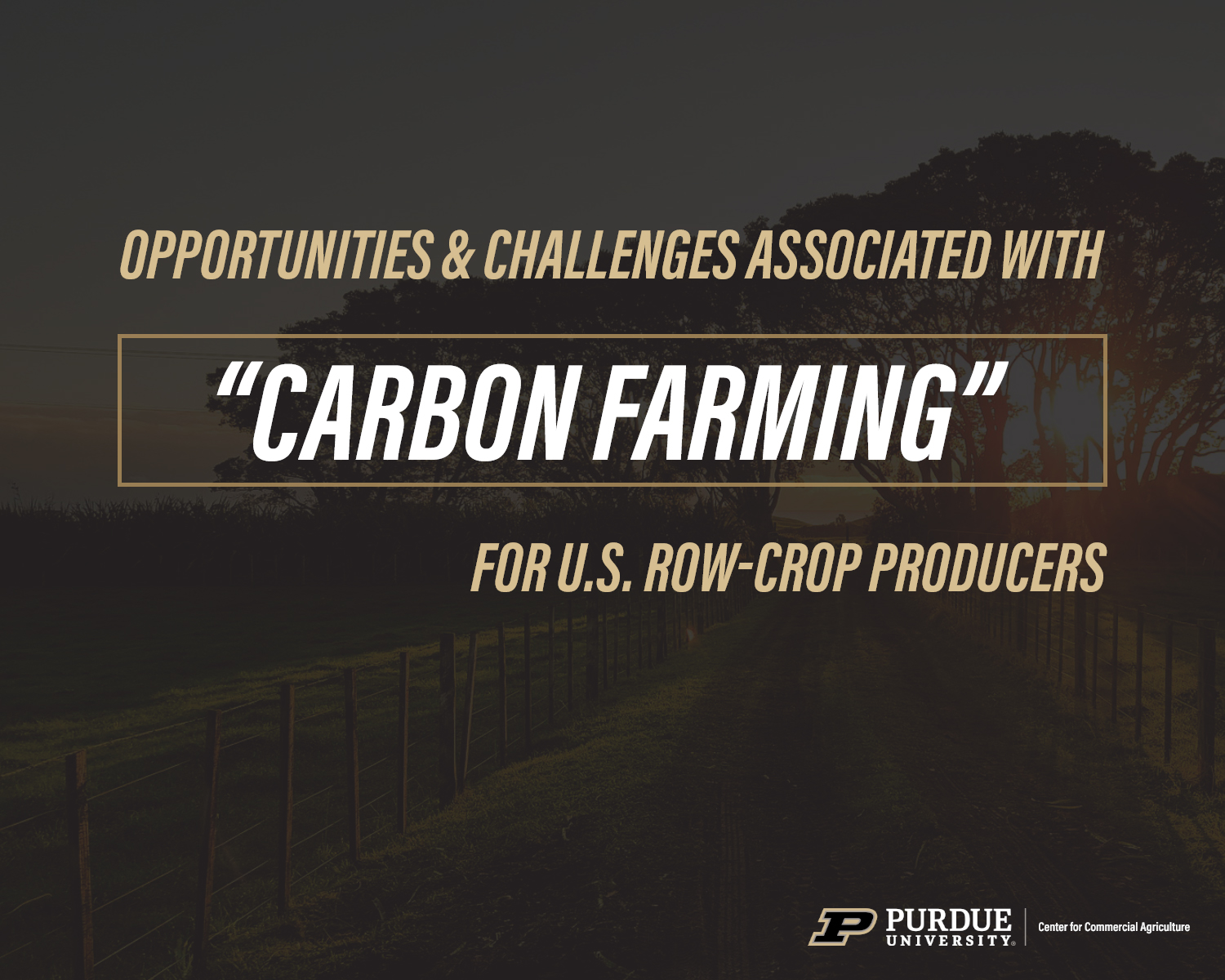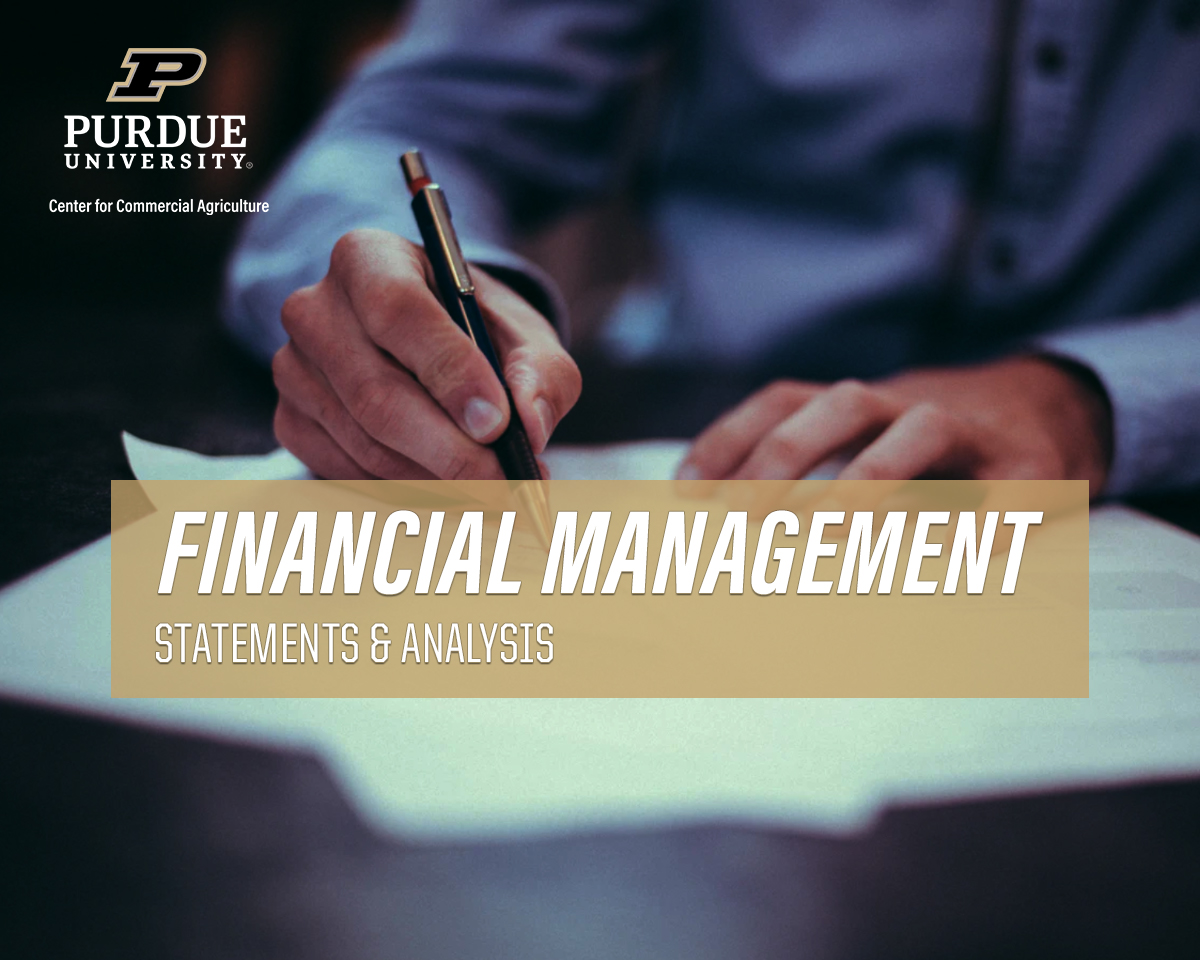September 16 at 7 pm or September 23 at 9 am
The Flexible Lease virtual Workshop, presented by the Purdue Extension Land Lease Team, will include a presentation and discussion to help you decide if a flexible land lease arrangement is right for your farm.
Read MoreFind out where we will be presenting next as we collaborate with others.

